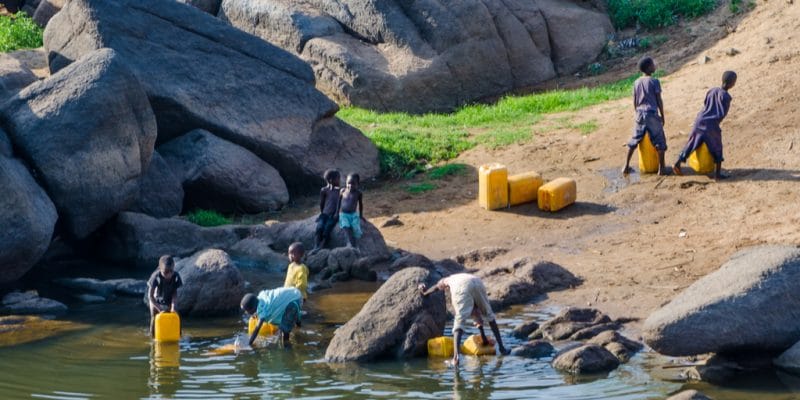The Nigerian federal government recently approved a €64.75 million loan from the French Development Agency (AFD). This funding is for the Kano State Drinking Water Supply Project in northern Nigeria.
It’s confirmed! The French Development Agency (AFD) will release 64.75 million euros for the Kano State drinking water supply project. The loan was recently validated at a meeting of the Executive Council of the Federation (ECF), the equivalent of the Council of Ministers. The grant was eagerly awaited by the local government of this territory in northern Nigeria.
At the beginning of 2018, AFD promised the State of Kano to support its project. After months of waiting, Governor Abdullahi Ganduje had appealed to the French government, talking about the “slowness” of the release of funds. The funding was intended to accelerate the drinking water project.
Drinking water in Kano State
The AFD loan will be repaid over a period of 20 years, with a seven-year moratorium. The project will be implemented by the Ministry of Water Resources of Kano State, through a management committee. The Kano State Water Authority and the Rural Water Supply and Sanitation Agency (Ruwasa) will be responsible for the facilities.
“The project aims to rehabilitate and build the necessary infrastructure to improve access to water services for the people of Greater Kano, and to help improve key sectoral reforms to ensure the sustainability of the project,” said Zainab Ahmed, Federal Finance Minister. By accessing “quality water”, the living conditions of about 1.5 million people will be improved in the greater region. “We are also looking to improve financial sustainability and its governance framework,” adds the Nigerian official.
Located in the Sahel (arid zone), Kano State has surface water resources. The government has built several dams to supply water plants such as the one in Challawa, with a capacity of 200,000 m3 of water per day. Several boreholes and community wells have also been developed in rural areas.
Access to safe drinking water is most difficult in villages. Women and children sometimes travel several kilometres in Kano State to collect water from rivers. With a global production of 270,000 m3 of water per day and a daily demand of 975,000 m3, the shortage of drinking water is acute here, according to the International Journal of Scientific Knowledge (IJSK).
Jean Marie Takouleu






